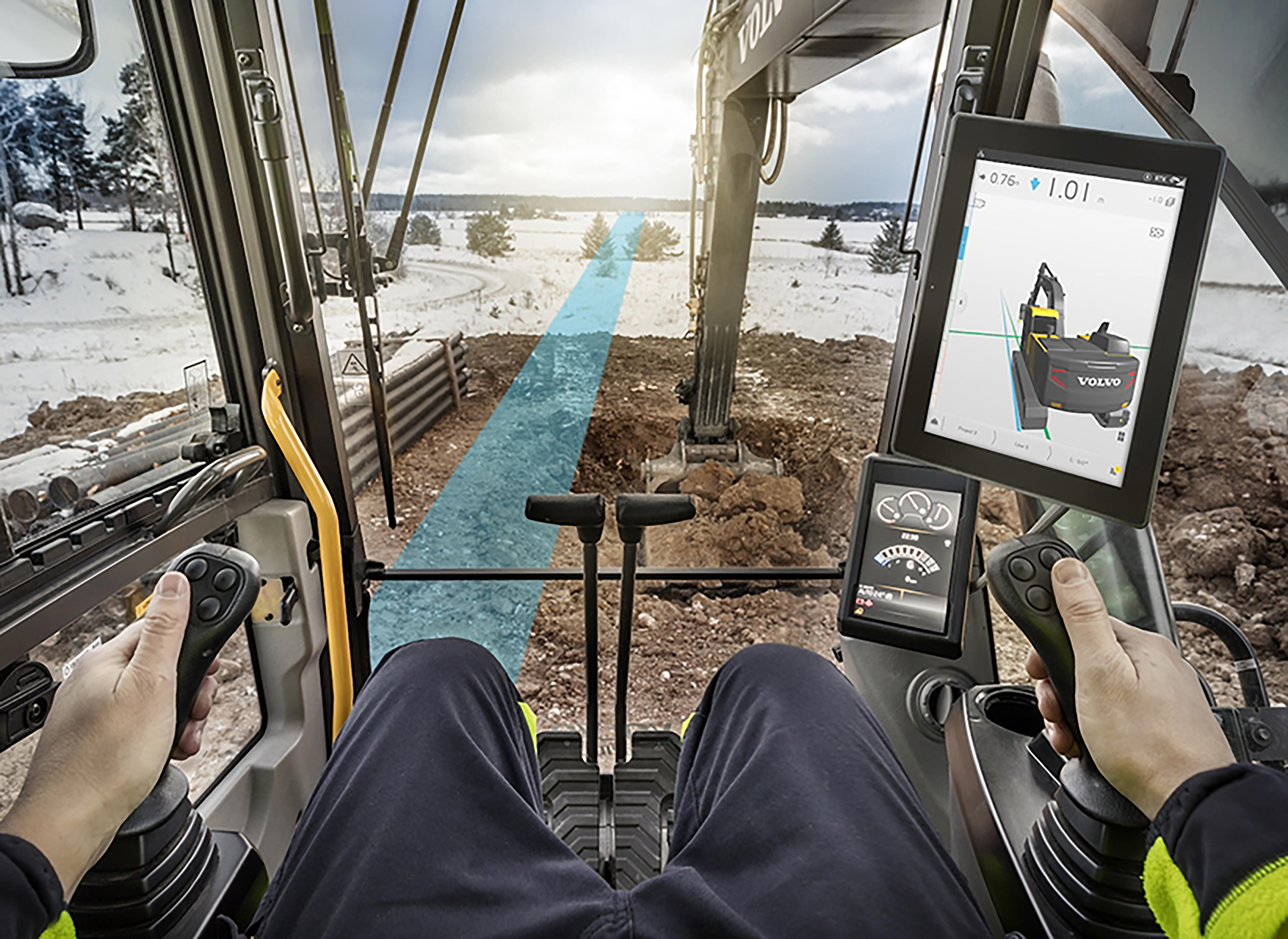How fintech is oiling the wheels of equipment financing

Movie fans of a certain age will remember actor Tom Cruise, AKA Jerry Maguire the sports agent, shouting ‘Show me the money!’ down the telephone line as he desperately tries to close a deal. While the financing of commercial equipment is mostly less dramatic, the availability of funding and insurance cover is no less important in sealing deals in the construction sector. With the arrival of advanced technology, the game is about to get a lot more sophisticated.
We may be in the business-to-business sector, but our customers are also consumers, and they can see how easy digital marketplaces have become. They say – understandably – ‘why can’t financing equipment be that fast and simple, with lots of choice and a single payment method?’ We aren’t there yet as an industry, but we are going to have to adapt quickly or someone will come along and steal our lunch.
Dropping the paper wait
Today, the process of funding the purchase of a piece – or a fleet – of equipment is relatively labour (and paper) intensive. Documents must be filled in, credit worthiness assessed, a yes/no credit decision made, more documents created that are then sent to the dealer to be printed off and signed by the customer, which are finally sent back to the finance house for filing. It works, and can be done quite quickly, but it’s clear that technology offers a more efficient solution.
Our goal is to digitize this whole process. Moving away from paper and the need to print documents in order to physically sign them, forms will be on a tablet computer that the customer can ‘e-sign’ from site or his pickup truck, or anywhere, just using their mobile phones. The approved digital documents can then be automatically sent to Funding and Documentation departments, as well as to the customer for their files. Not only is this much easier for the customer, it also streamlines the dealer and finance house’s supply chain considerably. At Volvo Financial Services we have already begun this process in many markets, but the pace of change needs to go up a gear.
Automate 2/3rd of credit decisions
Technology also offers the opportunity to speed up the credit decision-making process itself. Again, using software on a tablet computer, approximately a third of customers can be approved automatically, and similarly, approximately a third will be refused funding by the software. That allows the funding team to be much more efficient, concentrating their energies on the remaining third of customers. It is these transactions that really require human expertise to create the right deal structure for the customer.
So that’s how the present way of working is going to be modernized. But new technology is also opening up whole new concepts when it comes to funding and insurance. One example comes thanks to the introduction of sensors and remote telematics – offering up the possibility of ‘seeing’ how the equipment is being used in real time.
Connected insurance
When it comes to insuring equipment, today’s premiums are usually calculated on a mid-point based on the average user. But now we have the ability to instantly deliver optimized insurance quotes – thanks to our ability to capture customer data via the telematics fitted to Volvo vehicles. ‘Connected insurance’ delivers several benefits for customers, insurance providers, Volvo dealers and the Volvo Group brands themselves.
Chief among these advantages for customers are optimized pricing, a seamless sales process and ultimately a reduced Total Cost of Ownership. The process allows for instant certificates of insurance to be issued and significantly improves the customer experience. Smart insurance billing offers the convenience of combining multiple payments in a single bill process. And if there is an accident or incident, then an Early First Notice of Loss capability allows insurance carriers and Volvo dealers opportunity to promptly improve customer support.

Insurance that rewards good operator behaviour.
Greater customer convenience
One-stop shopping is another form of efficiency in the procurement of construction equipment. The ability to get the machines, the finance, the insurance, service agreements and warranty extensions all from a single source is more convenient for the customer, as well as being far quicker, more aligned and still competitively priced. This is something that the Volvo Group is espousing, tying in products from all its business areas wherever appropriate. (Trucks, construction equipment, industrial engines, financing etc.) All bundled up in a single invoice and payment point at the end of every month. This is not just more convenient for the customer, it will also help to get the machines on site as soon as possible.
The rise of fintech
Data is going to be a powerful enabler for finding efficiencies in the financing of construction equipment in the future. The growth of on-board sensors coupled with the advent of super-fast 5G mobile connectivity is going to provide a mountain of information on where and how machines are being used. This data, coupled with customer credit and payment history information, will help us tailor offerings to our customers. When you add in powerful data processing and emerging artificial intelligence (AI) technologies, we will start to understand our customers’ needs at an individual, granular level – possibly even understanding their needs better than they do themselves!
With the emergence of ‘fintech’ technologies, financing of construction equipment is set to spring rapidly from being a labour intensive and traditional, paper-based transaction, to a more streamlined, data driven and tailored digital approach. In the future, ‘showing them the money’ is going to be easier than ever before. Jerry Maguire would approve.
 Allen Atchley is Vice President of Strategy for VFS and Head of the VFS Innovation Lab. He is responsible for company-level strategy that aims to formulate VFS plans for the future. Allen also ensures that the VFS strategy is aligned with strategic initiatives across the Volvo Group. In his capacity as Head of the VFS Innovation Lab, Allen is charged with the identification of emerging and disruptive trends and the VFS strategic response through internal development and the creation of strategic partnerships.
Allen Atchley is Vice President of Strategy for VFS and Head of the VFS Innovation Lab. He is responsible for company-level strategy that aims to formulate VFS plans for the future. Allen also ensures that the VFS strategy is aligned with strategic initiatives across the Volvo Group. In his capacity as Head of the VFS Innovation Lab, Allen is charged with the identification of emerging and disruptive trends and the VFS strategic response through internal development and the creation of strategic partnerships.
Prior to joining Volvo Group, Allen held positions in executive management, business development, risk and finance with Capmark Finance and GE Capital, and has lived and worked in multiple countries in Europe and Asia.
Downloads
FOR FURTHER INFORMATION
Tiffany Cheng
Head of Brand, Marketing and Corporate Communication
Regions Asia and China
Volvo Construction Equipment
E-mail: tiffany.cheng@volvo.com
Åsa Alström
Head of Strategic Communications
Volvo Construction Equipment
E-mail: asa.alstrom@volvo.com